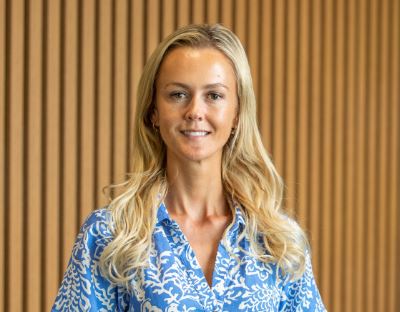A series of six ‘Finding a Way’ positive psychology video resources is helping to bridge the gap between medical science and the personal experience of parents who care for young children with severe epilepsy and other serious brain disorders.
With the support of Luminesce Alliance, the videos were developed by Dr Suzanne Nevin in collaboration with clinicians and researchers from the School of Clinical Medicine UNSW and the Paediatric Epilepsy Network New South Wales (PENNSW) (Prof Annie Bye, Fleur LeMarne, Erin Beavis, Rebecca Macintosh, Prof Claire Wakefield, Dr Rani Sachdev, Dr Elizabeth Palmer and Prof Kenneth Nunn). The videos reflect different stages, joys and heartache experienced by families.
The suite of videos, released in March 2022 across Sydney Children’s Hospitals Network, have proven to be a valuable resource for parents, families and clinicians caring for children with severe brain disorders.
More than 160 caregivers from 18 countries reviewed the resources, with 56 caregivers completing over 85% of the evaluation. Caregivers rated the resources as highly acceptable and relevant to their experiences with caregivers reporting that the resources normalised their emotional experiences and provided helpful suggestions about managing their personal relationships, seeking support and accepting help from others.*
“They resonated with me, right from video one. They put into words exactly how I felt through this journey. I actually nearly cried in the second video as I felt someone gets it. That’s me. I also loved how it describes how others cope with the diagnoses and gave me a better understand of my husband’s role”
“The practicality of each video. Parents need permission to grieve and hear these videos from the beginning of their journey. The medical field is all parents initially get but don’t receive any emotional, spiritual support.”
“They were beautiful. I’m literally in tears as I write this, I wish I’d had access to something similar 4 years ago when we got our child’s diagnosis, but I’m grateful for them today, they’re still just as relevant today as they would have been back then. Thank you.”
“I was looking for answers on this topic since my son was born, but I couldn’t find them. I really appreciate there is enough money and effort for parent’s mental health.”
The videos contribute to Luminesce Alliance Psychosocial Research Enabling Platform programs to improve the understanding of how patients, carers and health professionals deal with the challenges of the introduction of precision medicine, such as the risk of unrealistic expectations and understanding the implications of genetic screening for the extended family.
To ensure that all children and young people benefit from precision medicine, Luminesce Alliance extend research beyond the laboratory to address the psychosocial risks of precision medicine and ensure its equitable rollout.
Luminesce Alliance is one of the first organisations in the world to examine the psychosocial impacts of precision medicine. Our insights contribute to world leading collaborative psychosocial research in childhood genetics.
Psychosocial approaches to medicine look at patients’ and families’ experiences, understanding and communication around treatment, the surrounding social environment, and how these combine to impact the physical and mental wellness of individuals.
Psychosocial Research is one of five Luminesce Alliance ‘Enabling Platforms’. The Psychosocial Platform looks at the psychosocial implications for children and their families of precision medicine and genetic testing, and how to support and educate healthcare professionals in delivering precision medicine.
New techniques, such as whole genome sequencing, are rapidly changing our understanding and treatment of cancer, rare disease and neurodevelopmental disorders such as epilepsy, however the potential impacts of paediatric precision medicine programs on the psychosocial wellbeing of families are poorly understood.
Our researchers identify common impacts of, and barriers to, precision medicine, and develop educational resources for families and health care professionals.
Links to video resources:
- Finding a Way videos: Paediatric Epilepsy Network New South Wales website.
- Psychosocial implications of precision medicine: Luminesce Alliance
*Publications:
Nevin SM; Wakefield CE; Le Marne F; Beavis E; Macintosh R; Sachdev R; Bye A; Palmer EE; Nunn K, 2022, ‘Piloting positive psychology resources for caregivers of a child with a genetic developmental and epileptic encephalopathy’, European Journal of Paediatric Neurology, 37, pp. 129 – 138, http://dx.doi.org/10.1016/j.ejpn.2022.01.022
About Luminesce Alliance
Luminesce Alliance is a not-for-profit cooperative joint venture between the Sydney Children’s Hospitals Network, the Children’s Medical Research Institute, the Children’s Cancer Institute, the University of Sydney, and the University of New South Wales Sydney. It has been established with the support of the NSW Government to coordinate and integrate paediatric research. www.luminesce.org.au
About UNSW Sydney
UNSW Sydney is a global top 20 university, known for innovative, pioneering research and high-quality education with a global impact. Since our foundation in 1949, our aim has been to improve and transform lives through excellence in research, outstanding education and a commitment to advancing a just society. https://www.unsw.edu.au/
About Sydney Children’s Hospital Network
Sydney Children’s Hospitals Network is the largest paediatric health entity in Australia, with a team of 8,000 staff committed to providing world-class paediatric health care in a family-focussed, healing environment. https://www.schn.health.nsw.gov.au/



 Back to News
Back to News